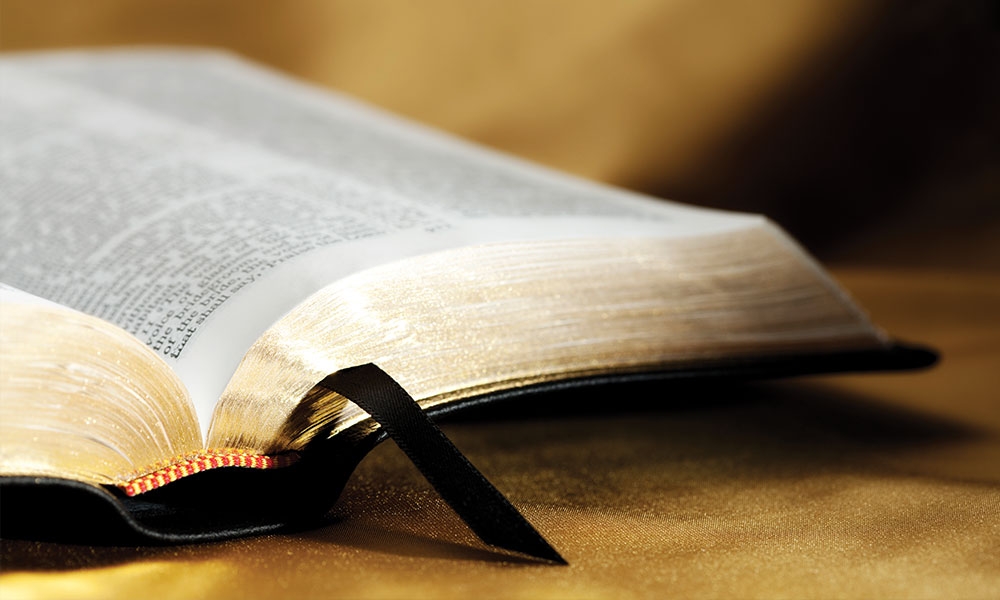
Why do Christians read different Bibles?
Dear Father Kerper: A few months ago I joined a Bible Study group at my parish. I brought my grandmother’s Bible, which is called the King James Version. Some people said that I should not read it because it expresses Protestant doctrines, not Catholic ones. I’m confused. How can there be Catholic Bibles and Protestant Bibles?
I thought all Christians use the same Bible.
Dear Father Kerper: A few months ago I joined a Bible Study group at my parish. I brought my grandmother’s Bible, which is called the King James Version. Some people said that I should not read it because it expresses Protestant doctrines, not Catholic ones. I’m confused. How can there be Catholic Bibles and Protestant Bibles?
I thought all Christians use the same Bible.
Your last comment is right on target: Sacred Scripture is essentially the same for all believing Christians. While this unity exists perfectly in the New Testament, Christians have never fully agreed about the contents of the Old Testament. Here’s what happened.
As God’s relationship with Israel, the Chosen People, moved forward through the centuries, always becoming deeper and more mature, written accounts of it multiplied. From the outset, Israel recognized Moses as an especially close and faithful friend of God. As such, the Israelites naturally regarded the writings of Moses as “inspired,” meaning that God had truly spoken through Moses. The Torah, which consists of five “scrolls” closely associated with Moses, is indeed the “original Bible,” and was quickly accepted as the Word of God.
With the passage of time, more sacred writings appeared, such as the historical books, psalms and prophetic writings. For the most part, religious authorities had little trouble separating the truly inspired texts from questionable ones. This process gave rise to the “canonization” of Scripture, the formal act of declaring that specific books originated with God.
Among the Jewish people, the preeminent authority resided within the Council of Jamnia, a group of prominent rabbis who met in 90 A.D. After much discussion, these rabbis ruled that only books written in Hebrew, used for many centuries in worship and linked with credible Jewish figures, would henceforth be regarded as inspired.
This decision undermined the practice of early Christians, who relied on the Greek version of the Old Testament known as the Septuagint. In effect, the rabbis declared that seven Old Testament books revered by Christians were not inspired at all, but merely “edifying.” The rabbis demoted Wisdom, Sirach, Esther, Judith, Tobit, 1 Maccabees and 2 Maccabees. These books came to be known as the “deuterocanonical” books or Apocrypha.
By and large, Christians continued to regard the excluded books as inspired, though some prominent Christian scholars, notably St. Jerome, sided with the rabbis. St. Jerome’s position, which dates from 390 A.D., was mixed; he denied the inspiration of the books because they were not in Hebrew, yet continued to quote and venerate them as if they were actually inspired. Contrary to St. Jerome, St. Augustine thought the language of the text mattered not at all. Rather, he asserted that the frequent and widespread reading of the books at Mass indicated that the Church regarded them as truly inspired. The bishops of Northern Africa, much influenced by St. Augustine’s very strong views, formally endorsed his position at regional Councils held in 393 A.D., 397 A.D., and 418 A.D.
In the 16th century, long after St. Jerome and St. Augustine had been dead, the so-called Protestant and Catholic Bibles emerged, each set against the other as dangerously wrong. In effect, however, the differences were really quite minor. Much more important, of course, was the issue of authority: Who, in the end, can reliably define what is and is not inspired by God? The Church! We must always remember that the Church existed before the Bible. Indeed, the Church selected the contents of the Bible, winnowing through many ancient texts and settling on the very few that reliably express the Word of God.
This brings us to the matter of using “Protestant Bibles” in Bible Studies and personal prayer. To be frank, “Protestant Bibles” are simply “Catholic Bibles” minus the seven deuterocanonical books. Moreover, no English translation, even the best, ever succeeds in getting the Greek and Hebrew perfectly correct. Hence, becoming familiar with other translations, especially the monumental King James Version (KJV), can enhance a Catholic’s own love and understanding of God’s Word.
And we must also remember that the Revised Standard Version of the Bible, a so-called Protestant version, has been used in Catholic worship for many years and comes in two editions: one with the deuterocanonical books and one without. Likewise, the New Revised Standard Version is now widely used among Catholics and is approved for liturgical use in Canada.
I strongly encourage you to keep studying Sacred Scripture, experiencing it as a great unifying force among Christians rather than as a battlefield over a few points.
This article originally appeared in the March/April 2018 issue of Parable magazine, the magazine of the Diocese of Manchester, NH. Used with permission.
Father Michael Kerper is the pastor of St. Patrick Parish in Nashua, NH.


